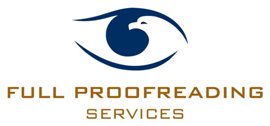THE PRIVILEGE OF EDITING—WHY EDITORS LOVE THEIR WORK (MOST OF THE TIME)!
Around the world, highly skilled and thoroughly trained people in a myriad of professions are entrusted with the safety and wellbeing of our loved ones, our health, our wealth, or even our lives. We entrust our children to the care of educators and carers; vets ensure the wellbeing of our pets; and many other professions including pilots, public transport drivers, car engineers, emergency service workers, chefs, etc., have responsibilities to keep us safe, healthy, and in some cases, alive. And it’s fair to say that while being entrusted with something as precious as life itself carries great responsibility, it is also a privilege to be endowed with that honour.
An editor is also entrusted with something precious. Okay, it mightn’t be quite as awe inspiring as saving someone’s life; then again, arguably editors have played an important role in the publishing of thousands of books over the years that have changed—or even saved—lives in one way or another.
When someone hands an editor their work, be it a fiction novel, a non-fiction book, an autobiography or a thesis, they expect us not only to handle it with care and respect, but also to enhance it. Understandably, they feel no small measure of concern when a project, which in some cases has taken months or even years to conceive, plan and write, is suddenly in the hands of a stranger, possibly someone you may never meet or even speak to in person.
This is why I believe that being an editor is a privilege. I feel honoured when someone approaches me with their blood, sweat and tears, and then following discussions, possibly a sample edit, and negotiation of a price, they entrust it to me to improve it—whether it be a structural or developmental edit, a copy edit, or simply a proofread. The hope is that whatever the client seeks to achieve, whether it be success as a published author, a better mark for their academic thesis, or simply seeing a very personal project come to fruition (not everyone writes to be published), I have played a key role in helping them achieve that objective.
Again, with privilege comes responsibility. I take my work very seriously. Editors are inherent perfectionists, but a good editor is also respectful, tactful, yet realistic and frank. A good editor encourages clients to improve their writing, brings stories to life, but at the same time retains their writer’s voice. A good editor is able to shine a light into a dark, forgotten corner of a manuscript and ask, “What’s happening there?”
Like most editors, I tend to grumble about how undervalued I am (as ‘words’ people rather than ‘numbers’ people, we are often our own worst enemies when it comes to money). I also become frustrated at the general lack of understanding of what an editor actually does, and the various levels of editing – which is why it’s explained on my website! To many people, we are ‘proofreaders’ and certainly, proofreading is an important part of editing, but I often have to explain we need to ‘back up’ a bit before we get to that stage.
So, fellow editors, let’s remind ourselves how lucky we are to be in the ‘business of words’. As long as people read, people will write, and as long as people write, people will read (is that a chicken-egg scenario or what?). This means, we are indispensable! Some argue that in time, human editors will be completely replaced by software programs. “Ye shall all be redundant!” I disagree. Sure, man-made programs can assist us with our work, but they will never replace the acuity and instinct of the human brain and a sharp pair of eyes, nor will they ever fully comprehend all the nuances, intricacies and idiosyncrasies of the world’s languages; English, in particular!
Like any profession, being an editor has its vicissitudes and, like any profession, the occasional odious or unscrupulous client can be disheartening, but to me, being an editor is the best thing since thin-sliced prosciutto. I thank God every day that thanks to parenthood, my career stalled, and then somehow meandered to the point where I decided the next logical step was to become an editor. I only wish I had discovered this ‘calling’ ten or better still, twenty years earlier. Nevertheless, I shall enjoy spending the rest of my working days helping people with their written word. It’s a passion, and it’s definitely a privilege.
Editors: Do you consider editing to be a privilege? I’d love to hear your thoughts.
